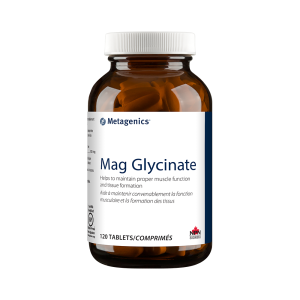Stress, Emotional support
 Stress and emotional disorders:
Stress and emotional disorders:
Our bodies have a wonderful rapid internal communication mechanism which is the Central Nervous System (CNS) structure. Whether a car is headed towards our path, or we touch a hot stove, we react immediately. Receptors (special structures) will transmit the information (a car is headed towards us, or the stove is hot) through nerves to our CNS which will interpret the information received and it will issue a command, via other nerves, to the organ most implicated (we contract our muscles to avoid the oncoming car, or to take our hand off from the burning stove element). How is this accomplished? Our nervous system employs various chemicals (neurotransmitters) and ions (sodium, potassium, etc.).
Neurotransmitters – description:
- Norepinephrine: maintenance of arousal, mood regulation
- Dopamine: emotional response, complex movements
- Serotonin: sleep, temperature regulation, sensory perception
- GABA: inhibitory effect, movement control
- Acetylcholine: memory and cognitive function
There are several nutrients for the nervous system, vitamin B complex which supports the nerve function; vitamin B1 plays an important role in cognition; vitamin B12 prevents nerve damage by keeping myelin sheath intact; vitamins B5, B12 for choline production; calcium, magnesium for nerve conduction; boron enhances brain function and promotes alertness; manganese maintains healthy nerves; potassium, sodium for nervous impulse transmission; glutamine for brain fuel.
The symptoms of imbalances:
For the central nervous system: irritability, apathy, headaches, insomnia, hypersomnia, loss of balance, lack of concentration, hyperactivity, depression, illusions, delusions, obsessions, hallucinations. For the peripheral nervous system: paresthesia (“pins and needles”), anesthesia (lack of feeling), pain, tingling, numbing.
Adrenal Fatigue:
The symptoms are a feeling of fatigue, weakness or inability to concentrate. There can be a low resistance to disease or sleep disturbances. Cold extremities, depression, or nervousness.
Some recommendations:
- Take nutritional supplements such as SynerG Supplements Whey or Vegan Protein
- Try using herbal extracts such as Herbs Etc Adrenotonic, Deep Health, Ultimate Ginseng
- Avoid stimulants
- Essential oils of lavender, chamomile, orange and lemon balm
- Keeping a positive attitude
- Meditation, massages, relaxation techniques
Headache, Migraines:
When we suffer from a headache, it is caused by the pain from the structures of the head and neck, since the brain itself is insensitive to pain. Other organ diseases or health issues such as: ear, nose, sinuses, teeth, jaw, neck muscles or systemic disease types of headaches also called Toxic state headaches that are due to toxemia, septicemia, alcoholism, infections.
Primary headaches are benign, they can be migraine, tension headaches, and cluster headaches. Secondary headaches are serious, usually a symptom of an underlying disease such as meningitis, or tumour.
The following list of factors can cause a Migraine headache:
- Stress, lack of sleep, change in atmospheric pressure, fatigue
- Hormonal factors: PMS, menopause
- Dietary factors: cheese, red wine, chocolate, coffee, are known to be the most frequent causes
- Food allergies
- Increased liver toxicity
- Caffeine withdrawal
- Constipation
The following list is the list of symptoms that manifest themselves during a migraine:
- Inability to look at the light
- Inability to listen to noises
- Sensing unusual smells
- Nausea, vomiting
Recommendations:
- Try natural support for migraine headaches such as Herbs Etc Migra Free.
- Try to address the liver and prevent constipation with Herbs Etc Liver Tonic
- Identify food intolerance or sensitivities
- Avoid known stressors
- Take nutritional supplements such as SynerG Supplements
- Increase intake of alkaline foods
- Avoid saturated fats which will feed into the inflammatory pathway
- Increase intake of magnesium-rich foods
- Use stress management techniques
- Get proper sleep and keep a positive attitude
- Drink plenty of water
- Take a B Complex
Showing 33–48 of 97 results
-
Digestion, Pancreas, Stomach, Stress, Emotional support
Original price was: $24.17.$19.78Current price is: $19.78. Add to cart -
Digestion, Pancreas, Stomach, Stress, Emotional support
Original price was: $50.54.$46.88Current price is: $46.88. Add to cart -
Calmatives, Energy, Men's health, Nervous System, Sleep aid, Stress, Emotional support, Supplements, Women's health
Original price was: $20.51.$16.11Current price is: $16.11. Add to cart -
Bloating, Diarrhea, Flatulence, Immune health, Cold, Flu, Intestinal health, Memory, Concentration, Stress, Emotional support
Original price was: $27.83.$24.90Current price is: $24.90. Add to cart
Showing 33–48 of 97 results
























